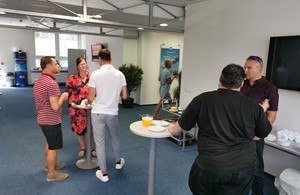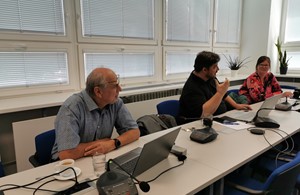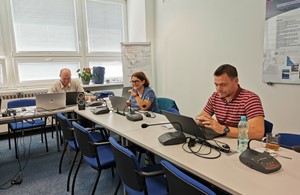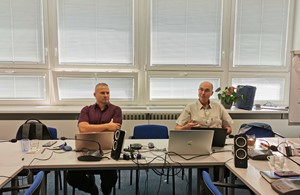Workshop for cluster managers focused on communication on August 18, 2022 in Prague
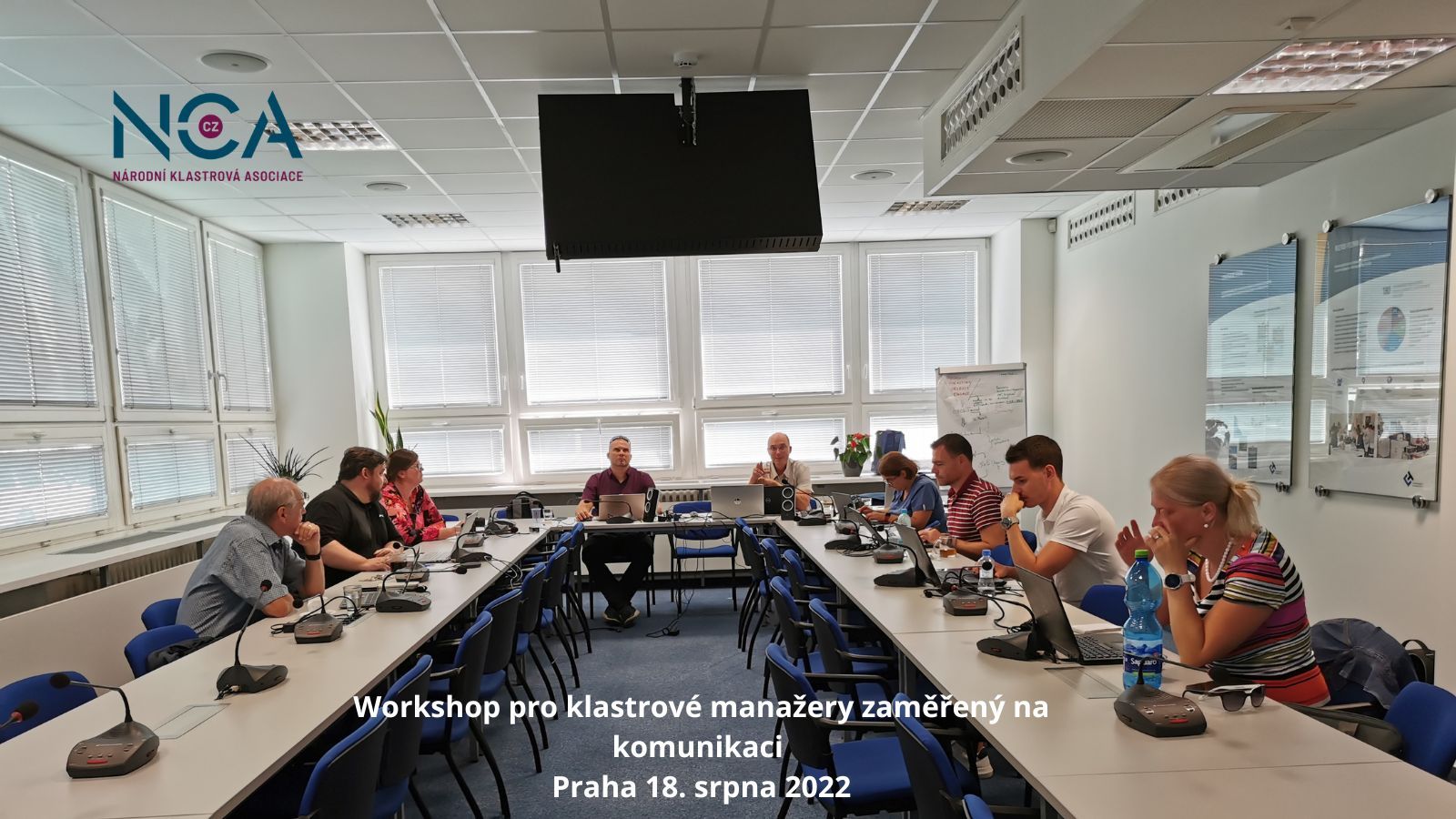
We have carried out a very rewarding workshop focused on the effective communication and presentation of the results and success for the cluster organisations. The reason, we have selected this topic is the long-term problem in the cluster environment. The clusters provide very meaningful and professional services, quality products and results; nevertheless, there is a very little awareness of such out of the cluster community.
Clusters, mostly, do not choose successful means of presenting their achievements. This is unfortunate, because clusters have a very huge potential in solving problems, inspiring wide scale of companies, research institutions as well as public.
Accordingly, we have focused on developing marketing skills and learning how to write and place the article, case study or post on the social network with the special attention to the particular audience.
In fact, clusters, most commonly communicate primarily towards companies or research institutions. Nevertheless, it is essential not to forget also about National and European politicians, in particular Regional representatives, National government and European Commission. Companies and researchers are interested mainly in new business opportunities or possibilities for valuable cooperation. Conversely, cluster members need to feel that the membership is useful, brings required benefits, prestige and opens new opportunities. On the contrary, regional and national government representatives consider as crucial and essential the way clusters help with regional development and contribute to national economy grow. Last but not least, there is a key role of clusters on European level as torchbearers fulfilling European industry strategy.
Recommended Structure of the Case Study
We have rehearsed the basic rules of communication. The foundation bases of each case study are the facts. The second pillar, context or story, enables reader to associate with the situation and gain clearer comprehension, whether described solution or service can help him or her in particular. We have emphasized the fact that accurate case study consists of three parts. The first one targets the recipient of the communication. We shortly introduce the initial problem and present how and to whom our service or solution has helped. The second part contains detailed description of proposed suggestion highlighting the core component and the way it has been put into practice. The crucial rehearsal part demonstrates the outcome and results of the selected solution, highlights whether it fulfilled our initial expectations and finally introduces the future plans and visions for further expansion.
Last but not least, we have also explained the undermined importance of case study headline. It is necessary for the headline to contain brief and clear information, such as who we are addressing with the news, final results or benefits, name of the product or service. Additionally, if we have calculated “specific outcome or benefit”, it is useful to place it in the heading as well.
Having learned the rules and principles above, there is a similar process for elaboration of different types of presenting outcomes and results, such as web articles or social media posts. By all means, having the actual reader in mind is essential. Is our statement or advice going to help solve particular problem of the reader? Will it motivate or inspire him or her? We should not waste words and lines without bearing in mind clear overlap directly to the reader.
Before practical exercises, we have also briefly touched the topic of the news and references, in particular the ways, how to publish on the Web precisely and properly. We have shared know how and tips for effective use of LinkedIn. We were very proud to welcome also foreign speakers Silvia Jiménez García, project manager and marketing strategy manager and Jose Ramón Natal, Cluster manager from Spanish Meta Industry4, who have joined us online.
In conclusion, we are happy to have hosted participants from seven cluster organisations. Each of them has prepared and presented a concept of case study and earned immediate feedback from other participants as well as from the lecturer. The cluster managers now can use some time to absorb their inspiration and ideas and finish the case study proposals in their offices. National Cluster Association is looking forward to the new final versions of the cluster results and success, so we can proudly publish them using our communication channels. We are enthusiastic and honoured to be able to share information concerning glamourous achievements of our cluster organisations.
We would like to thank to all the participants: Petr Hladík (TC AV, Technology Centre CAS), Luboš Komárek (Nanoprogress), Kateřina Podaná (Cluster Mechatronics), Petr Přikryl (Czech Optical Cluster), David Rozhoň (Moravian Aerospace Cluster), Břetislav Skácel (CREA Hydro&Energy), Ivo Říha (CEDEG & NCA) and Magdalena Vrabčeková (Czech Marine Cluster). We hope that each of the participants has gained something useful and important for their further work.
Workshop has been moderated by Jiří Herinek and Ivo Říha. Our special thanks go also to the Technology Centre of the Czech Academy of Science for providing us with nice cosy and comfortable premises.
|
Created: 23/08/2022 13:01:27
|
